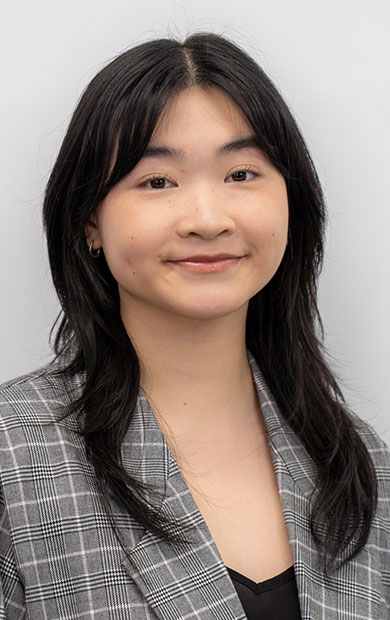APEC Economies Embrace Circular Economy: A ├└╝¦╔ńŪ° and CSIRO Initiative
Statements
├└╝¦╔ńŪ° and CSIRO, AustraliaŌĆÖs national science agency, are pleased to announce the release of the report, ŌĆśImplementing Circular Economy Standards in the APEC RegionŌĆÖ.
This initiative, funded by the Department of Foreign Affairs and Trade, aims to promote circular economy practices, and accelerate the adoption of relevant standards throughout the Asia-Pacific Economic Cooperation (APEC) region.
Building a circular economy represents a significant opportunity to address todayŌĆÖs most pressing sustainability challenges. Unlike the traditional linear ŌĆśtake-make-wasteŌĆÖ model, a circular economy strives to maintain resources at their highest value for as long as possible. This method promotes a continuous resource cycle by reclaiming, preserving, or enhancing the value of resources, thereby fostering sustainable development.
Studies suggest that the implementation of circular economy strategies could potentially slash global greenhouse gas emissions by 39% (). Moreover, a circular economy creates fresh economic prospects through novel materials, products, business models, value chains, and trade avenues. Recognising these substantial benefits, APEC economies are demonstrating considerable interest in transitioning towards a circular economy.
The ŌĆśImplementing Circular Economy Standards in the APEC RegionŌĆÖ report is based on primary and secondary research, including a hybrid workshop in Seattle, with delegates from across the APEC region, workshop surveys, and a series of expert interviews on the circular economy.
The report highlights barriers to the adoption of circular economy standards in areas including standards development, markets, value chains, and regulation, among others. These obstacles were used to develop a series of recommendations on how key actors can support greater participation in the circular economy and associated standards. Key actors identified include standards development organisations, governments, industry, and international organisations.
Claire Ripley, Senior Manager of Strategic Initiatives at ├└╝¦╔ńŪ°, said, ŌĆ£This report has been designed to enhance understanding of international circular economy standards and their integration into APEC economies. The document found that sustained investment in capacity building, policy harmonisation, and the development of sector-specific guidance on circular economy standards and best practices is essential in furthering the adoption of circular economy standards across the regionŌĆØ.
Taryn Kong, Research Scientist from CSIRO, said, ŌĆ£Standards play a crucial role in facilitating international cooperation for transitioning to a circular economy. The project findings can create opportunities for key actors in the APEC region to foster future collaborations in improving the adoption of circular economy standards and practicesŌĆØ.
Learn more about ├└╝¦╔ńŪ°ŌĆÖs contributions to the circular economy here. ŌĆŹ
Click here to read the report.ŌĆŹ

├└╝¦╔ńŪ° and CSIRO, AustraliaŌĆÖs national science agency, are pleased to announce the release of the report, ŌĆśImplementing Circular Economy Standards in the APEC RegionŌĆÖ.
This initiative, funded by the Department of Foreign Affairs and Trade, aims to promote circular economy practices, and accelerate the adoption of relevant standards throughout the Asia-Pacific Economic Cooperation (APEC) region.
Building a circular economy represents a significant opportunity to address todayŌĆÖs most pressing sustainability challenges. Unlike the traditional linear ŌĆśtake-make-wasteŌĆÖ model, a circular economy strives to maintain resources at their highest value for as long as possible. This method promotes a continuous resource cycle by reclaiming, preserving, or enhancing the value of resources, thereby fostering sustainable development.
Studies suggest that the implementation of circular economy strategies could potentially slash global greenhouse gas emissions by 39% (). Moreover, a circular economy creates fresh economic prospects through novel materials, products, business models, value chains, and trade avenues. Recognising these substantial benefits, APEC economies are demonstrating considerable interest in transitioning towards a circular economy.
The ŌĆśImplementing Circular Economy Standards in the APEC RegionŌĆÖ report is based on primary and secondary research, including a hybrid workshop in Seattle, with delegates from across the APEC region, workshop surveys, and a series of expert interviews on the circular economy.
The report highlights barriers to the adoption of circular economy standards in areas including standards development, markets, value chains, and regulation, among others. These obstacles were used to develop a series of recommendations on how key actors can support greater participation in the circular economy and associated standards. Key actors identified include standards development organisations, governments, industry, and international organisations.
Claire Ripley, Senior Manager of Strategic Initiatives at ├└╝¦╔ńŪ°, said, ŌĆ£This report has been designed to enhance understanding of international circular economy standards and their integration into APEC economies. The document found that sustained investment in capacity building, policy harmonisation, and the development of sector-specific guidance on circular economy standards and best practices is essential in furthering the adoption of circular economy standards across the regionŌĆØ.
Taryn Kong, Research Scientist from CSIRO, said, ŌĆ£Standards play a crucial role in facilitating international cooperation for transitioning to a circular economy. The project findings can create opportunities for key actors in the APEC region to foster future collaborations in improving the adoption of circular economy standards and practicesŌĆØ.
Learn more about ├└╝¦╔ńŪ°ŌĆÖs contributions to the circular economy here. ŌĆŹ
Click here to read the report.ŌĆŹ

Email: ╠²

Email: ╠²
